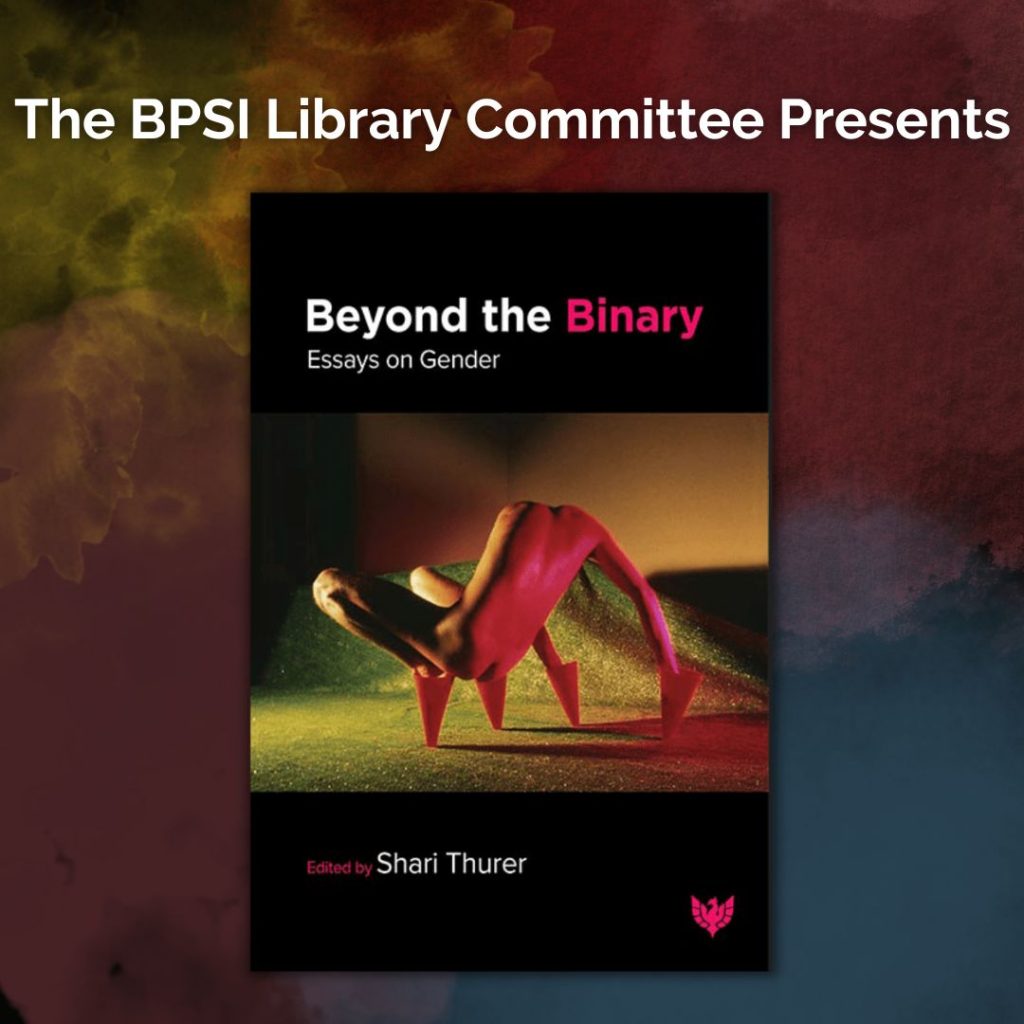
We are happy to announce the publication of Beyond the Binary: Essays on Gender, a manuscript edited by BPSI Member Shari Thurer, ScD, in collaboration with the Library Committee. This is the fourth publication sponsored by the Library Committee of the Boston Psychoanalytic Society and Institute and the first published by Phoenix. Click here to purchase a copy!
About the Book:
The increase in the number of non-binary children and adults in our society raises important treatment questions as well as much controversy. It seems essential that analysts and candidates grapple with the challenges this change in society presents. As we struggle in our psychoanalytic societies to diversify our membership and broaden our understanding of difference, this collection offers an opportunity for further discussion and study of one of the most important issues of our time.
The opening essay by editor Shari Thurer provides a clear overview of recent cultural changes and the evolution of thinking about gender identification by the American Psychoanalytic Association. Next is an autobiographical essay by long-term non-binary individual Robin Haas plus a clinical reflection on Haas’ contribution by Rita Teusch. A recent account of an individual becoming non-binary from Francesca Spence is followed by the reactions of their parents, L. Harry Spence and Robin Ely. After that are psychoanalytic thoughts about the body and gender by Malkah Notman and reflections on gender from Dan Jacobs. The book ends with an extensive bibliography on the subjects of transsexuality and non-binary gender by Oren Gozlan.
Beyond the Binary: Essays on Gender introduces readers to current ideas about gender fluidity and choice, as well as giving voice to those who are non-binary. This is a must-read for all practicing clinicians that will help broaden their perspective on this growing issue.
About the Editor
Shari Thurer, ScD, is a Boston Psychoanalytic Society and Institute Psychotherapist and Library Committee Member, a former Adjunct Associate Professor at Boston University, a psychologist in Boston, and the author of many noted publications, including Myths of Motherhood: How Culture Reinvents the Good Mother (Houghton Mifflin Harcourt, 1994) and The End of Gender: A Psychological Autopsy (Routledge, 2005).
Reviews
Ken Corbett, Clinical Assistant Professor, New York University Postdoctoral Program in Psychoanalysis and Psychotherapy
‘Gender is always arriving, and psychoanalysts seem always to be chasing its coattails. Most often this chase has been an effort to corral gender: to capture, categorize, and conclude. Beyond the Binary – a collection of essays written as history, memoir, guide, critique, bibliography – works to move past the capture of categories. This monograph is possessed of a beguiling intimacy that engages the reader to rethink gender, gendered embodiment, and the analytic enterprise in listening to gender, its vicissitudes, and discontents.’
Dr Daniel Anderson, psychiatrist and group analyst, author of ‘The Body of the Group: Sexuality and Gender in Group Analysis’
‘Beyond The Binary is a deeply personal and beautiful collection of reflections about contemporary understandings of gender in the psychoanalytic community. Eloquently written and accessible to all who are curious, it impresses through its inclusivity and compelling engagement between the reader and its authors.’
Jack Drescher, MD, Clinical Professor of Psychiatry, Columbia University, Adjunct Professor, New York University, Training and Supervising Analyst, William Alanson White Institute
‘Psychoanalysis originated within a nineteenth-century, binary view conflating sexuality with gender. In this matrix, Freud hypothesized a biological, drive-driven, cross-cultural universal theory of mind. Times have changed. Today’s nontraditional gender presentations instead rely on individual subjectivities that call into question universalizing, cisnormative beliefs. These new clinical presentations also challenge psychoanalysts to move beyond procrustean developmental theories, theories that all too frequently lead to countertransferential impositions of therapists’ subjectivity onto patients.

